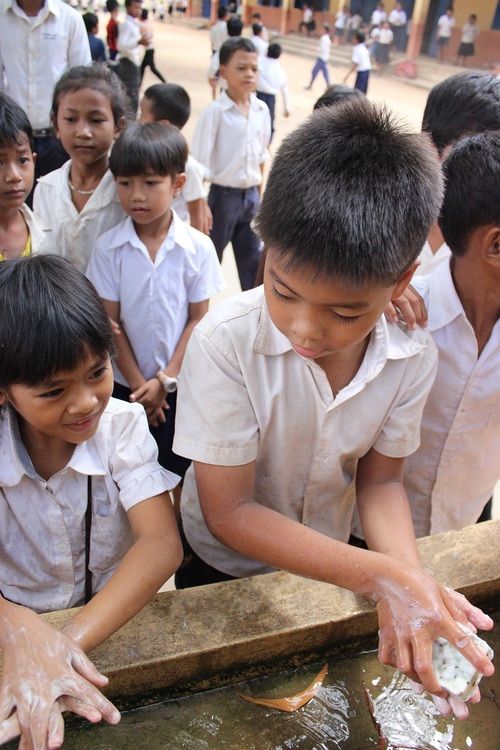Infectious diseases can spread quickly in communities that lack access to soap. Eco-Soap Bank, a nonprofit organization, is finding a solution to this problem by collecting gently-used hotel soap and donating it to communities in need.
The organization gathers soap from more than 200 Cambodian hotels and guesthouses. Next, the soap is sterilized and processed. The recycled soap bars are then packaged and distributed to hospitals, health clinics, schools, orphanages and village communities in Cambodia. Each soap bar is paired with hygiene education, so people can learn how to protect themselves and their families from preventable diseases.

Photo: Eco-Soap Bank
Implementing handwashing stations and giving out soap in public schools was essential in the fight against the Ebola virus in West Africa last year, according to Reuters. Although washing with soap may seem like a basic practice in many American homes and public spaces, that’s not always the case in underserved communities, where many lack hygiene access and education.
“The motivation for the organization started in a single moment, when I witnessed a village mother bathing with laundry detergent, a toxic alternative to bar soap,” said Eco-Soap Bank Founder Samir Lakhani in an interview with Lady Freethinker.
The idea to reuse hotel soap “came instantaneously” said Lakhani, because he was staying at a Cambodian hotel during the organization’s inception. At the hotel, housekeeping staff would remove soap every day and replace it with a new bar — something Lakhani felt was a wasteful practice when communities could benefit greatly from its use.
In the three years since its establishment, Eco-Soap Bank has collected 24,033 pounds of soap and redistributed it to an estimated 660,000 individuals.

Photo: Eco-Soap Bank
“Soap is donated for free to schools because we believe that children in public schools should have access to hygiene and sanitation,” said Lakhani. “We have seen that health, rashes, and other ailments have improved. Overall health of children contributes to better attendance and attention.”
In addition to donations, the group hires Cambodian women to sell soap at a low cost in their local community.
“Soap income from sales have helped families to stay in their home when faced with debt, to afford necessary medicines, send children back to school — all while providing access to affordable hygiene in the community,” said Lakhani.
Learn more and find out how you can help at Ecosoapbank.org.






